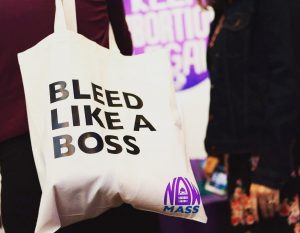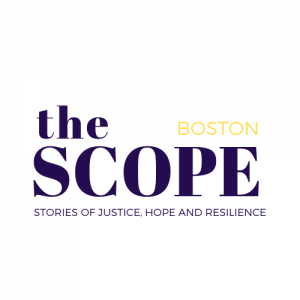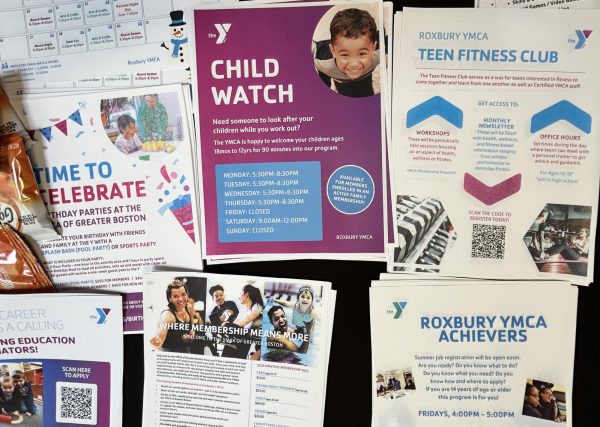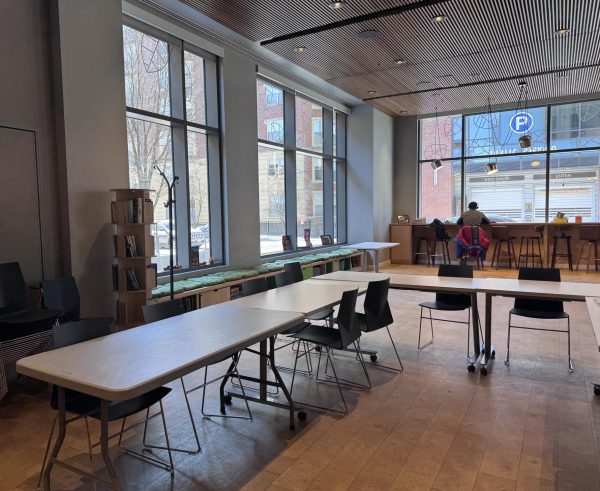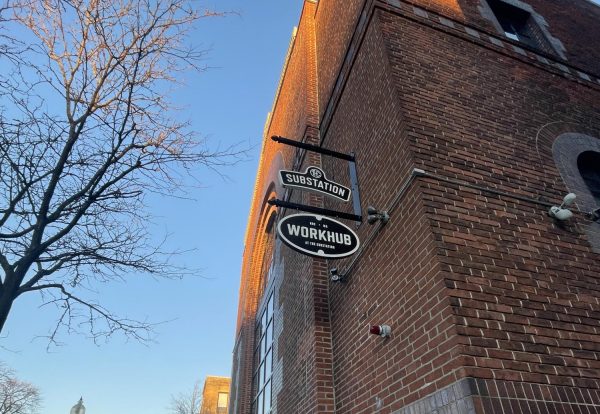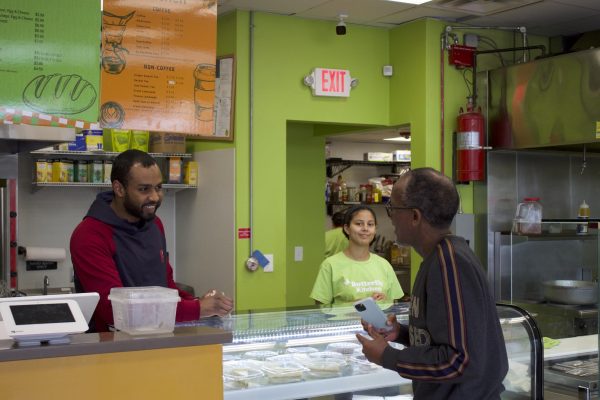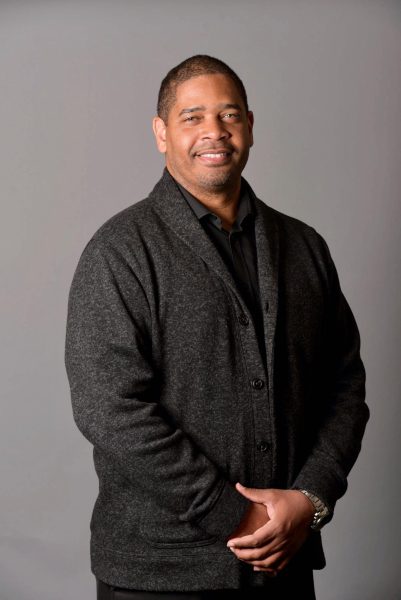Changemaker: African Bridge Network assists immigrants in finding professional jobs
Emmanuel Owusu was checking out his items at a grocery store one day when he learned that his cashier had a college degree in engineering but settled for the job at the store after he immigrated to Massachusetts from Ghana. Owusu, who is also an immigrant, was inspired to establish the African Bridge Network with the goal of helping African immigrants reach their full potential in the new country.
There were approximately 104,163 African-born immigrants in Massachusetts in 2018, according to statistics from the Migration Policy Institute. Many of them come with backgrounds in medicine, engineering, human resources or finance, but that doesn’t necessarily translate into a job once they arrive in the United States, said Lauren Pedulla, a volunteer coordinator for career advising services at the African Bridge Network.
The Newton-based organization, Pedulla said, aims to help African immigrants find professional jobs that they already have the skills and experience in, rather than resorting to look for “survival jobs.” The Network offers mentorship programs, career guidance, and networking with other immigrants who are professionals in their fields. This year, the organization received grants from the Boston Resilience Fund to support food security in the African and the immigrant community in Boston by distributing grocery gift cards, according to the mayor’s office.
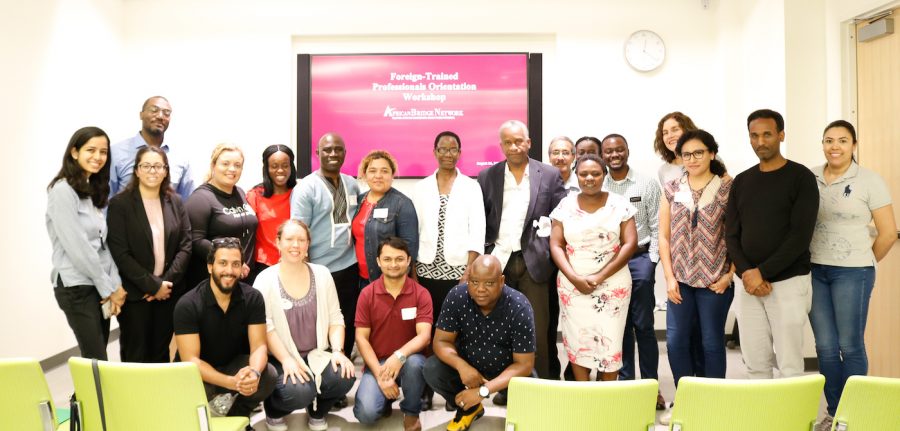
Pedulla works with new immigrants to help them catalyze their career in the United States, improve resumes, expand professional networks and find jobs.
Pedulla said she has always gravitated towards immigrant work, and came across the African Bridge Network online and reached out to provide assistance. Ever since, she has worked to assist founder Owusu on developing programs while providing career advising to many of the organization’s clients.
Pedulla discussed her work with the Scope. The following transcript has been edited for length and clarity.
Q: How did you get involved with the African Bridge Network and what do you do?
A: I came across the African Bridge Network online and you know, reached out Emmanuel, who is our executive director and founder of the African Bridge Network, and we met. He told me a bit about what the agency does and that there was still a need for a program to be developed and that is the career advising services program. So he brought me on as a volunteer. But essentially, my role was to help him develop these programs. So when we started, there were just initial meetings with the two of us and we were kind of brainstorming ‘What’s the need here? And how are we going to actually move this forward?’ So after a few meetings we determined that we needed to build a team. So the career advising services kind of took off when we recruited volunteers.
Q: How many volunteers do you have?
A: So we have five volunteers, including myself, who will be career advisors, and we essentially have gone through an extensive training that allows us to have the tools to give back in the way that we need to for this particular program. So there’s five of us that work directly with clients, and it’s something that is still very new. It’s still being developed as we go but we’re in a place right now where we’re actually starting to work directly with clients, immigrant professionals, with the goal to essentially help them catalyze their career now that they’re in the United States and give them the resources that they need in order to utilize the skills that they already have.
Q: How do you help African immigrants looking for jobs?
A: There are many different programs that the African Bridge Network offers. There’s an orientation program, there’s a mentoring program. There’s a speaker series program, and then there’s the job search and career advising program. So it’s very multifaceted, but the overall mission is to just provide a support system that supports African immigrants in Massachusetts, to achieve their career aspirations and really help them reach that potential. We have five career advisors and we’re all currently working with one client at this time. So we have about five individuals that we’re working with right now and we have a system of getting an intake form from these individuals so that we can continue the flow of clients.
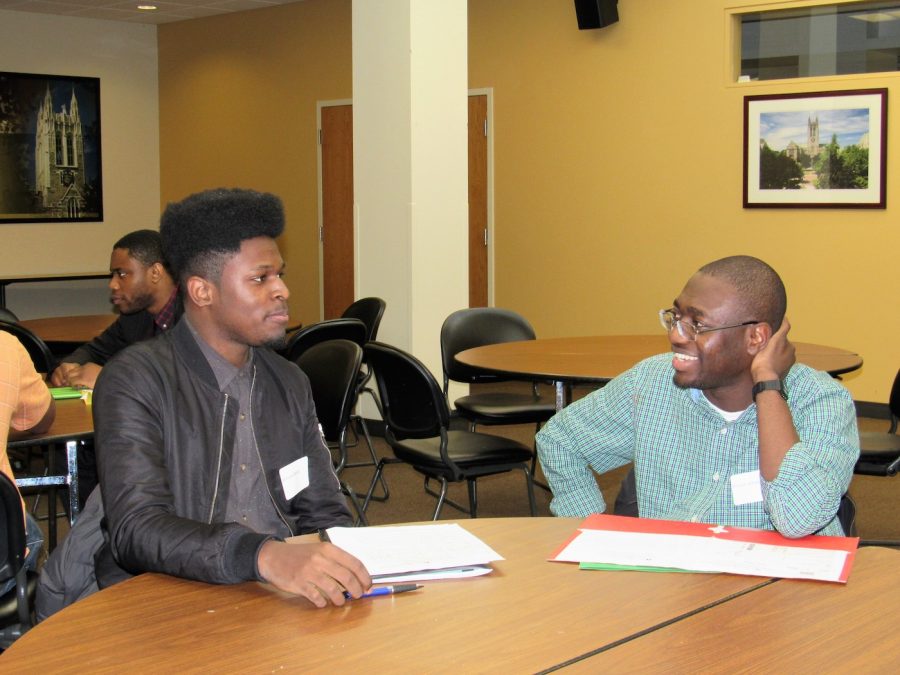
Q: How do immigrants get in touch with you for help?
A: The application is found on our website. We offer people services that pertain to career exploration, resume and cover letter writing, job search, application and networking, as well as informational interviews and interview preparation. So, we have an intake form that goes through our website and that’s how we see who is interested in our services that we provide. Once we review these intake forms, we can assess the needs of the client and determine ‘Okay, what are the services that they really need right now in order to move them on to the next step?’
Mostly when we first meet with a client, we often start with reviewing their resume. As I mentioned before, all of our volunteers are trained in resume writing, cover letter writing. So, the services are standardized across the board based on the training that we provided. We put a lot of emphasis on their resume because we know how critical it is when applying for a job in the United States. So oftentimes, we do start with that process, but a lot of it is case by case. So that intake form is really an important part of the process so that we can really, you know, give them more specialized services based on their immediate need.
Q: Do clients pay for services at the African Bridge Network?
A: It’s all nonprofit. So all of the services that we provide, we don’t charge and because our career advisors are all volunteer based, clients do not have to pay for these career advising services.
Q: What are some of the grants that help provide these services?
A: We receive support from many organizations such as The Boston Foundation, Lenny Zakim Funds, Eastern Bank and the The Tomfohrde Foundation. We were also awarded a grant from the Boston Resiliency Fund recently.
Q: How has your work changed during the pandemic?
A: A lot of the work we currently do is remote. Before the pandemic, we had been meeting at the Boston Public Library but all of the work that we do with our clients is virtual right now until we eventually can safely be back together. Doing things remotely has been an adjustment for everyone but I think the way that our program is designed is actually not too affected. We have the technology and we have the resources to meet with clients remotely. In a way, it kind of adds more flexibility because we can meet in the comfort of our homes and we don’t need to set up a strict meeting time and worry about commuting and things like that.
But I do think, in respect to job opportunities and for clients, that has been an added struggle, because there’s not a lot of hiring going on right now. So we meet with clients and we try to identify what kind of career they’d like to build here with the hopes that they can secure a job but I think just because of the climate that we’re in right now, that’s an added barrier, because hiring is just not really happening right now due to the pandemic.


